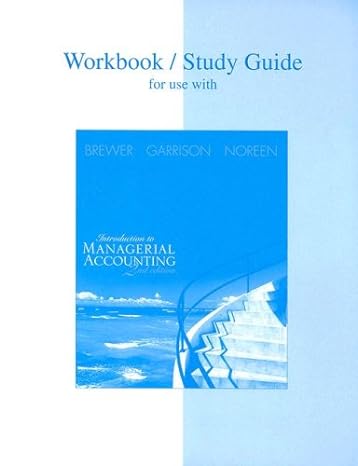Question
Please answer the following questions, treating each case independently: a) Mr. Turner visited his accountant Ms. Blackford, on March 31, 2023, to discuss the tax
Please answer the following questions, treating each case independently:
a) Mr. Turner visited his accountant Ms. Blackford, on March 31, 2023, to discuss the tax consequences of a recent transaction. On January 10, 2023, Mr. Turner received a dividend of $100,000 from Dot.com Ltd., a company he owns 100%. Mr. Turner would owe $36,000 of personal taxes on the dividend received.
Ms. Blackford explained that if he had transferred his shares of Dot.com Ltd. to a holding corporation (Holdco Ltd.) on December 31, 2022, he could have deferred the personal tax on the dividend until it was paid out from the holding corporation to him personally.
Ms. Blackford assured Mr. Turnover that, even if he did not follow this strategy last year, he could simply set up Holdco Ltd. now and transfer his shares to Holdco, and have Holdco receive the dividends instead. He could then state on his tax return that this transaction actually happened last year, and he can backdate all his documentation to convince the CRA of the timing of events.
If the CRA discovered this discrepancy, explain what the tax consequences would be for both Mr. Turnover and Ms. Blackford.
b) Bert owns a small repair shop as a sole proprietorship. He started the business in 2017. Prior to that, he was working as an employee with all income taxes withheld by the employer. After starting the business, his annual tax payable is as follows:
| 2017 | $2,700 |
| 2018 | $3,200 |
| 2019 | $2,500 |
| 2020 | $3,400 |
| 2021 | $2,800 |
| 2022 | $4,500 |
On which of the following years does Bert need to make instalment payments to the CRA?
In addition, suppose Bert thought in 2022 that his business income would be similar to 2021. If Bert felt very strongly about this assumption, would he likely make instalment payments? Given that the actual 2022 tax payable turned out to be $4,500, what would be the implications with respect to potential interest payments?
c) X, Y and Z filed their personal tax returns on May 31st 2023 for the 2022 year. X and Y are employees and Z is a business owner. X determined that he owed $4,700 in tax on that date and enclosed a $4,700 cheque. Y computed a refund of $2,000. Z included a cheque for $3,500 relating to his balance of tax. What interest & penalties might each be liable for?
Step by Step Solution
There are 3 Steps involved in it
Step: 1

Get Instant Access to Expert-Tailored Solutions
See step-by-step solutions with expert insights and AI powered tools for academic success
Step: 2

Step: 3

Ace Your Homework with AI
Get the answers you need in no time with our AI-driven, step-by-step assistance
Get Started


